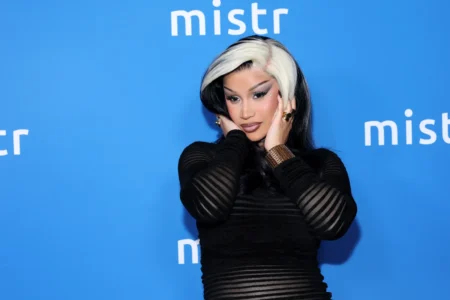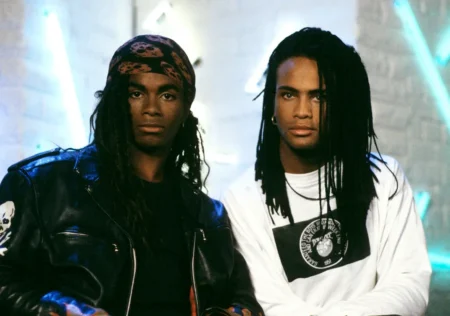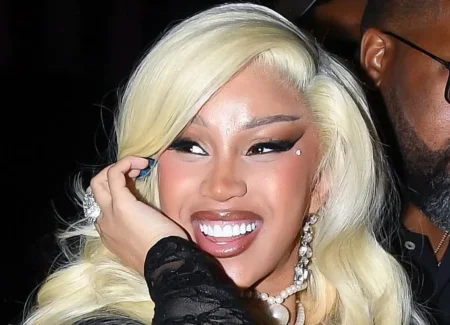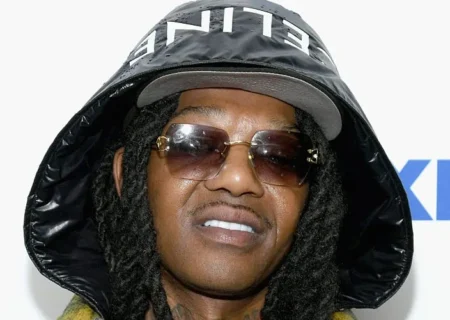Omowunmi, the widow of the late Nigerian singer Ilerioluwa Aloba, widely known as Mohbad, has accused her father-in-law, Joseph Aloba, of avoiding a court-ordered DNA test to resolve a paternity dispute concerning her son. The ongoing legal battle has been marked by accusations, delays, and disagreements over procedural choices.
Court’s Initial Directive
The Magistrates Court in Ikorodu, Lagos State, during its July 9, 2024, session, directed both parties to pursue an alternative dispute resolution process. Despite closed-door negotiations, the parties failed to reach an agreement. The court then ordered that a DNA test be conducted at a mutually agreed laboratory within Nigeria, with appointed officers overseeing the process to ensure reliability.
Father-In-Law’s Suit
Joseph Aloba had initiated legal proceedings in October 2024, requesting a DNA test to confirm the paternity of his grandson. At the time, Monisola Odumosu, representing the family’s legal team, confirmed that Omowunmi had agreed to undergo the test, and settlement terms were drafted. However, a disagreement over the choice of laboratory caused the process to stall.
Disagreements Over Laboratory Choice
According to a letter dated January 9, 2025, from Omowunmi’s legal representatives, Salawu Akingbolu Chambers, Omowunmi rejected Aloba’s preference for the University College Hospital (UCH), Ibadan. Aloba, in turn, objected to Omowunmi’s choice of Lagoon Hospitals.
To resolve the impasse, Omowunmi proposed two neutral alternatives—Eko Hospital and Reddington Hospital—in a letter dated December 11, 2024. Despite this gesture, she claims Aloba has not responded to her suggestions, effectively delaying the process.
Widow’s Legal Counsel Accuses Delay Tactics
In her letter, Omowunmi’s counsel accused Joseph Aloba of deliberately delaying the DNA test while defaming her son on social media. “We have patiently waited for your response, but nothing of the sort to date,” the letter stated. The counsel emphasized Omowunmi’s willingness to cooperate and asserted that their suggestions for neutral hospitals demonstrated transparency.
The letter also denounced allegations made by Aloba’s lawyer, Taiwo Odumosu, claiming that he misrepresented Omowunmi’s intentions during a media interaction. “To our utter surprise, instead of you responding to our letter, we saw Mr. Taiwo Odumosu saying on social media that we are the ones not ready for the DNA. This is not the case,” the letter added.
Threat to Conduct DNA Test Independently
Frustrated by the lack of progress, Omowunmi’s legal team warned that they might conduct the DNA test independently if Aloba continues to stall. “If your client chooses to continue in this tardy manner and prefers empty social media hype, we will have no other option than to conduct the DNA ourselves and publish the results for the whole world to see,” the letter read.
Aloba’s Response
Joseph Aloba, through his legal representatives, Hillceetee Partners, denied the allegations of delay and misrepresentation. In a response dated January 11, 2025, and signed by Emmanuel Oroko, the firm clarified that Taiwo Odumosu had never claimed Omowunmi was unwilling to conduct the DNA test. Instead, Odumosu reportedly stated that the hospitals involved had yet to confirm their readiness to proceed.
The letter further emphasized Odumosu’s respect for Omowunmi and her legal team. However, Hillceetee Partners announced that they would cease representing Aloba in the matter. “This response is necessary as a courtesy to your good self and to set the record straight as our chambers no longer represent the Applicant,” the letter concluded.
Broader Implications
The ongoing paternity dispute highlights the challenges of resolving sensitive family issues through legal channels. The delay in reaching an agreement has not only prolonged the legal process but has also fueled public speculation and media controversies.
Next Steps
As tensions escalate, all eyes remain on both parties to see whether they can agree on a neutral laboratory or if Omowunmi will proceed with her threat to conduct the DNA test independently. The outcome of this case could have significant implications for the legal handling of similar disputes in Nigeria.














